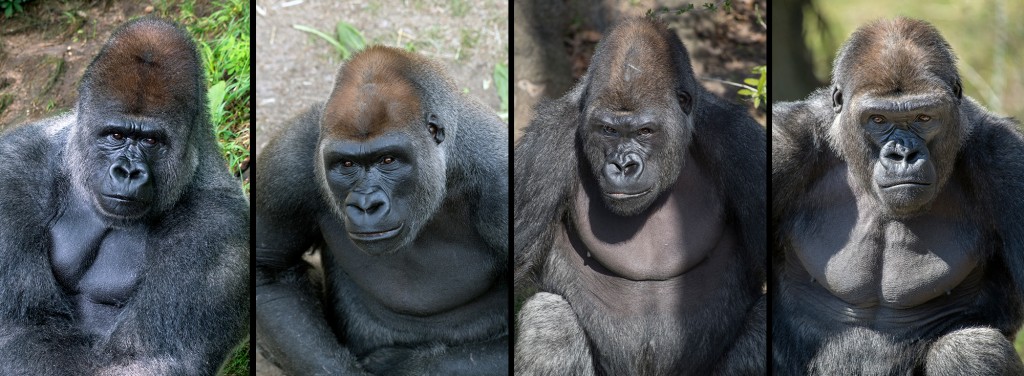
May 23, 2019
The Bachelors
- as seen by -
 Sabrina Squillari
Sabrina Squillari
The largest and perhaps most impressive primate is the gorilla.
Adult males can grow to be over 400 pounds and are called “silverbacks” due to the saddle of silver hair across their backs. In the wild as male gorillas mature, they leave their natal groups to look for opportunities to find females and start a troop of their own to lead. During this time, they may range as a solitary male or with other males for several years until securing a group of females. Here at WCS’s Bronx Zoo, in addition to having two mixed sex breeding troops, we have an all-male group. It consists of two sets of half-brothers between the ages of 12 and 13.
Our bachelor males were born at the zoo and remained in their family groups as long as they were tolerated by their fathers. Eventually, the signs were there. Tensions began to grow between the young males and their father, the troop leader. When the males reached the age of about seven, it was recommended by the gorilla Species Survival Program (that oversees the population management of gorillas for AZA zoos) that we introduce the four males to form a bachelor group. Although bachelor groups have been common in other zoos, this would be a first for the Bronx Zoo.
The males were introduced as young “blackbacks” meaning they were no longer juveniles and not quite silverbacks — teenagers, if you will. This transition was an adjustment for them as well as the zookeepers. The young gorillas’ energy and growth rate was exponentially higher than our older animals and young females. It seemed like there was never enough food to keep up with them or toys they couldn’t break in one test run. They were all eager to learn and interact with the zookeepers and have thrived in their training programs. All four males currently participate in operant conditioning training and have weekly cardiac ultrasound sessions with veterinary staff.
As the bachelors have matured into silverbacks, their social needs have changed. Although a highly social species, gorillas often choose alone time over socialization. We recently began separating them overnight to limit food competition and allow for much needed personal relaxation. Come morning, they are reunited, and we monitor their interactions. Just like us, they are incredibly individual and their daily needs are constantly changing. Because of this, we are committed to doing whatever we can to allow them to flourish as silverbacks. We look forward to the time that they will have the opportunity to lead a troop of females of their own.
I was fortunate to be working at the zoo’s Congo Gorilla Forest exhibit for the birth of all our bachelor males. Watching them mature into the massive silverbacks they are today has definitely been an incredible experience.
Next time you visit Congo Gorilla Forest, look for our amazing bachelors and say hello to Johari, Baraka, Babatunde, and M’domo (left to right, above).
Nikon D5
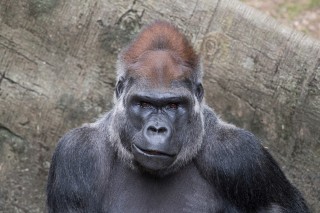
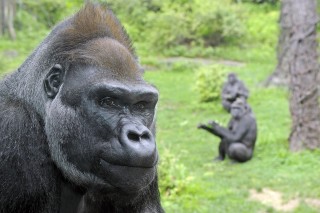
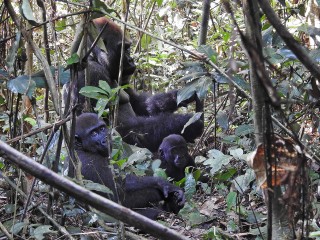
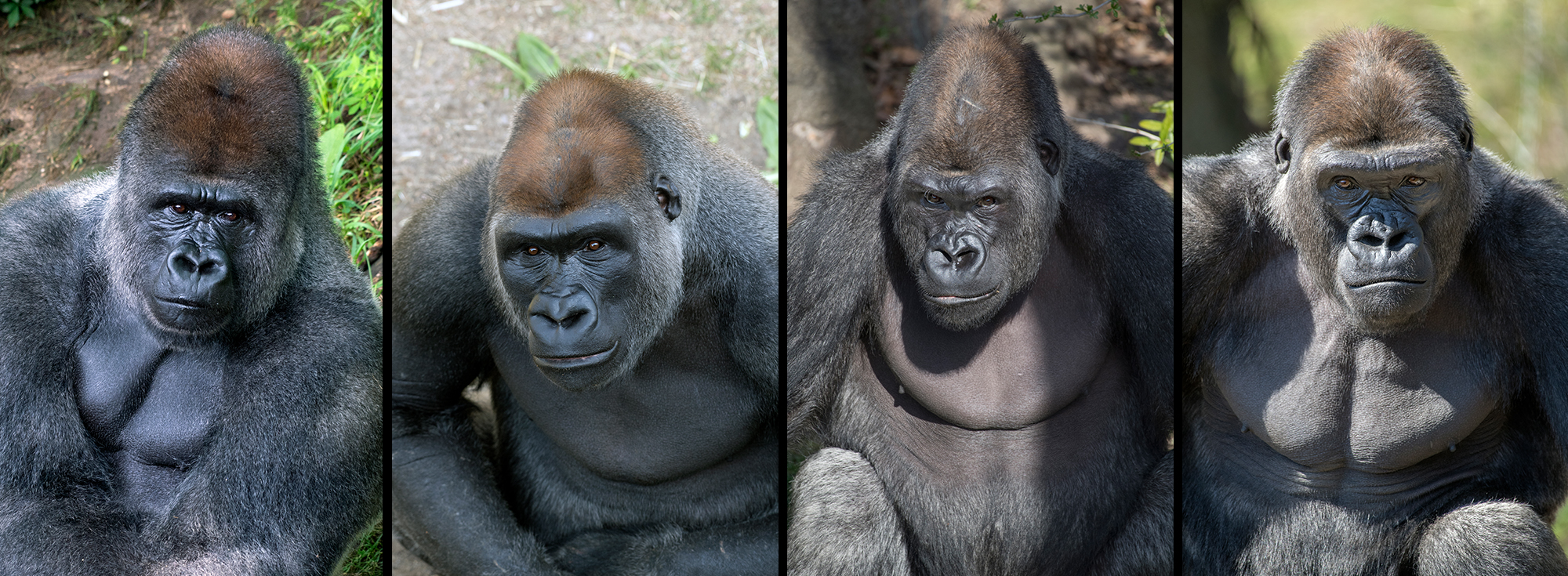
Comments
Mike Durkin
May 24, 2019 at 2:44 pm
Are any of the female members of the the two family troops genetically appropriate to breed with any of the bachelors?